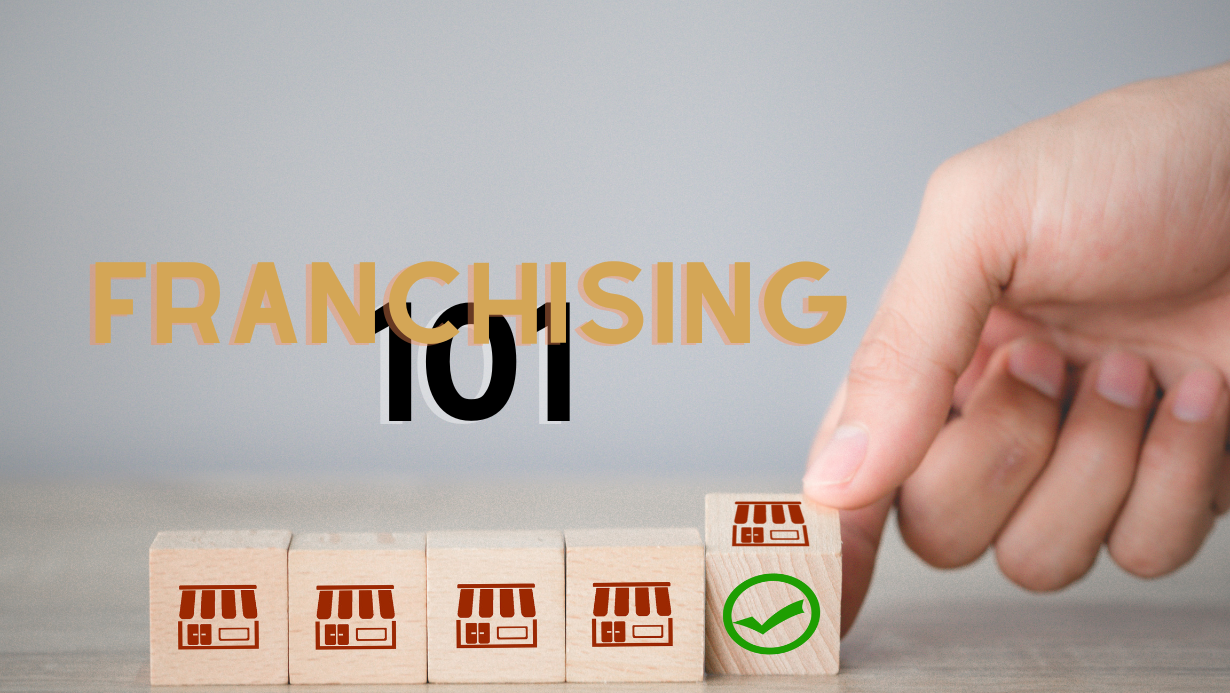Ready to Embark on an Exciting Journey with WIN?
Take the first step toward personal and financial freedom by filling out the interest form. One of our franchise advocates will be in touch with you soon!

Franchising might seem like a complex business venture, but it’s actually a streamlined path to business ownership that’s been paving the way for entrepreneurs for decades. In the U.S. alone, there are over 750,000 franchise establishments, contributing to nearly 8.4 million jobs, and generating more than $787 billion of economic output annually. Whether you dream of opening a home services business, coffee shop, or fitness center, franchising can help you turn your entrepreneurial dreams into reality, with the added support of a brand that’s already loved by many.
Franchising is a collaborative business model that bridges a franchisor, the owner of a brand and business model, with a franchisee, an individual eager to manage their own business under an established brand and proven business model. This partnership is mutually beneficial – the franchisor expands its brand’s reach without the high costs of opening and managing new locations, and the franchisee gets to steer a business with a lower risk of failure thanks to the proven business model and support provided.

Franchising opens a world of opportunities for entrepreneurs and provides them with a safety net that independent startups often lack. When it comes to franchising, five key benefits make it an attractive option for new entrepreneurs.
One of the most significant advantages of franchising is building a business with a brand that’s already recognized and trusted by consumers. This comes with a tried-and-tested business model, which reduces the traditional challenges of starting a business from scratch.
Franchisors typically provide comprehensive training and ongoing support to their franchise owners. This can include everything from operational training to staff hiring practices to financial management. This support is invaluable, especially for first-time business owners, ensuring you’re well-equipped to run your business efficiently and successfully.
Franchisees benefit from the franchisor’s national or regional marketing campaigns, which can be more robust and effective than what an individual business owner could afford or manage. Additionally, many franchisors offer resources and support for local marketing, helping you attract customers in your specific territory.
When you open a franchise, you immediately tap into an existing customer base that is familiar with and trusts the brand. This can lead to a higher rate of success upon opening, rather than slowly building customer awareness and loyalty.
Franchises tend to have a higher success rate compared to independent businesses. The established systems, brand recognition, and ongoing support significantly reduce the risk of business failure, offering a more promising path to business ownership.
Your franchising journey will require careful consideration and due diligence. There are a lot of decisions to be made and a lot of opportunities to explore. Here are some tips to guide you throughout this process.
Not all franchisors offer the same level of support. Investigate the training (especially if you need to build any skills or gain trade knowledge), operational guidance, marketing assistance, and other support services a franchisor provides. You should also reach out to current franchise owners to gain a better understanding of the level of support you can expect from the franchise system.
The FDD is packed full of information. It’s often very lengthy and written in legalese. It’s important that you read through and understand the information in its entirety as it details the franchisor’s history, the financial performance of existing franchises, legal obligations, and ongoing fees. This due diligence can help you set realistic expectations and make an informed decision about how well the franchise suits your needs and goals.
Before signing your Franchise Agreement, consult with professionals who specialize in franchising. A lawyer can help you navigate the legal intricacies of the franchise agreement, while a financial advisor can assist you in evaluating the business model’s viability and your financial commitments. Their expert advice can help protect you from potential pitfalls with the franchise opportunity.
Assess the demand for the franchisor’s products or services in your desired territory. Consider factors like local competition, market saturation, and demographic trends. Understanding the market potential can help you predict the success of your franchise and identify the best location for your business.

Securing the necessary funds is a crucial step in your franchising journey. Thankfully, there are several financing options available to prospective franchisees. Understanding these options is important when planning how you intend to finance your franchise.
One day, Bob called on WIN Home Inspection to come out and do a thorough inspection on the home he and his wife were looking to purchase. Little did he know that home inspection would change his life. In talking with his WIN home inspector, he learned that after years of building a flourishing business, the owner was looking to retire. Pleased by the overall experience and growth potential of the industry, Bob jumped on the opportunity to buy the business and create a legacy for himself and his entire family.

“When I bought the business, it was doing 370+ inspections that year, and the next year I was able to repeat that, surprisingly. I didn’t lose any business and it worked out great. Every time I went on an inspection, I knew that I was representing WIN, looking professional in my vehicle, and doing the best inspection I could. It grew until I was doing 600+ inspections by myself. In 2022, I did 750+ inspections, which is incredible! Last year, I was able to train four new team members.”
– Bob Twaddle
As of January 2024, Bob has now transitioned his WIN business to his son-in-law, Adam. With his wife by his side and Bob as an incredible mentor, Adam is excited to continue creating the family legacy and serve his community with the best home inspection services he can, just like one home inspector did for Bob.
1. A New Franchise Opens Every 8 Minutes
A new franchise opens its doors every 8 minutes during a business day, showcasing the rapid expansion and constant growth of the franchising sector.
2. Franchises Fuel Employment & Economic Growth
Over 8.5 million people are employed across various franchise businesses, highlighting the significant contribution of franchises to employment and the economy.
3. Over 3,000 Franchise Systems in the U.S.
More than 3,000 unique franchise systems are operating in the U.S., offering a vast array of opportunities for prospective franchisees in diverse sectors.
4. U.S. Hosts Over 70 of the World’s Top 100 Franchises
The U.S. is home to over 70 of the world’s top 100 franchises, underscoring the innovation, strength, and international appeal of U.S.-based franchises.
5. U.S. Franchises Generate $827 Billion Output
Franchises in the U.S. generate an impressive economic output of $827 billion, demonstrating the substantial impact of franchising on the national economy and its role as a key driver of economic growth and stability.
6. Higher Success Rates and Entrepreneurial Safety Compared to Independent Businesses
Franchises tend to have a higher success rate compared to independent businesses. The established systems and support provided by franchisors significantly reduce the risk of failure, offering a safer route to entrepreneurship.
7. WIN Home Inspection Tops Entrepreneur Magazine’s Rankings
WIN Home Inspection has been ranked as the #1 home inspection franchise in the U.S. by Entrepreneur magazine for two consecutive years, 2023 and 2024.